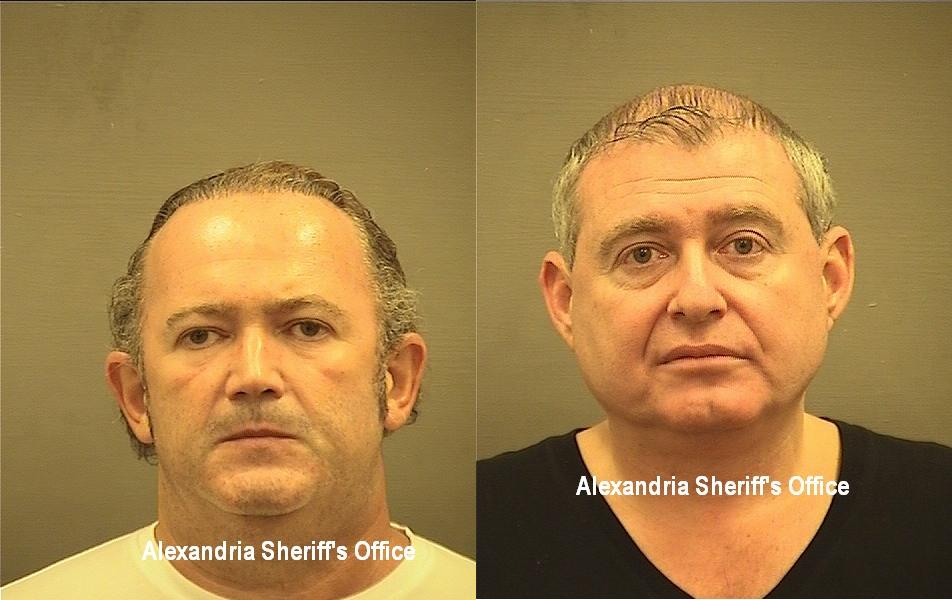It Was All [Fruman’s] Contacts in Ukraine
During his media blitz, Lev Parnas has focused mostly on the people he needs to implicate to better his own outcome: President Trump, Rudy Giuliani, Victoria Toensing, and Joe DiGenova, along with Bill Barr who — Parnas seems to be suggesting — is protecting the others in the SDNY investigation, if not Barr himself.
There’s been virtually no mention of his primary alleged co-conspirator, Igor Fruman. Indeed, in the first of two Maddow broadcasts, Fruman’s name only appears twice, when Maddow raised it.
But Parnas made a single very provocative mention of Fruman in his otherwise unremarkable Anderson Cooper interview that aired last night.
In discussing who he was speaking to in Ukraine, he suggested those people were all Fruman’s contacts.
COOPER: You’ve been described — the position you ended up with Giuliani, you’ve described as a fixer for Giuliani in his efforts to dig up dirt on the Bidens. Is that accurate?
PARNAS: I don’t know what you call a fixer. I mean, I was —
COOPER: Arrange meetings, conduct meetings —
PARNAS: Yes. I mean, that’s exactly what I did. I mean, I was the middleman between two worlds.
Here I was, I had a partner in Igor Fruman that grew up in Ukraine, had extensive business there. And because of his businesses, he knew all kinds of people that were, you know, politicians —
COOPER: He had — he had the contacts.
PARNAS: It was all his contacts. I didn’t have any contacts in Ukraine. I don’t have any contacts in Ukraine. [my emphasis]
Parnas goes immediately from claiming he was relying on Fruman’s comments to telling the story that he otherwise has stuck to: these people took his calls because he would claim he was calling on behalf of the most powerful man in the world, the President of the United States, then put the President’s lawyer on speaker phone to verify himself.
COOPER: For a guy who does not have contacts in Ukraine, you were able to get meetings with a lot of very important people in Ukraine. Why was that?
PARNAS: Well, I mean, if the president of the United States tells them to meet with you, I think anybody will meet with you.
Fruman is virtually absent from Parnas’ media blitz narrative except for that moment where Parnas hinted that Fruman’s contacts were a key part of the grift.
This WaPo story from yesterday provides one hint about what kind of contacts Fruman might have. As Fruman tells it (rather dubiously), he “happened to” run into someone in a lobby in Kyiv — who by implication though the story doesn’t make this 100% clear, appears to be Dmytro Firtash’s associate and alleged Moldovan fraudster Dmitry Torner — which led to a meeting with Rudy in Paris.
Giuliani’s introduction to Firtash’s network began in May. That’s when Fruman told a person familiar with his account that he happened to run into a friend in the lobby of a Kyiv hotel who could get to Firtash.
Torner worked as the head of the analytics department at an electricity and gas distribution company in Ukraine owned by Firtash, according to public records and information he later provided election officials in Ukraine when he launched a bid for the parliament as part of a pro-Russian political party.
Representatives of Firtash declined to comment on Torner’s role.
On the eve of parliamentary elections in July, Ukrainian authorities announced that Torner had been disqualified because officials had discovered that he held multiple fraudulent Ukrainian passports under various names.
According to Ukraine’s Security Service, Torner is a citizen of Moldova named Dmitry Nekrasov who was wanted for escaping incarceration in his home country and changed his name to start a new life in Ukraine.
[snip]
In late May, a few weeks after Fruman told an associate that he encountered Torner in Kyiv, Giuliani met with the Firtash executive in the private cigar bar of the luxury hotel Le Royal Monceau Raffles Paris, according to people familiar with the encounter.
That led to the June meeting that Fruman and Parnas had in Vienna with Firtash himself, where they offered a quid pro quo on behalf of the President of the United States, trading some kind of cure for Firtash’s criminal problems in the US in exchange for dirt on Joe Biden and Paul Manafort.
The OCCRP report included in the whistleblower complaint speaks at more length about the kinds of contacts Fruman has in Ukraine.
Fruman, 53, has spent much of his career in Ukraine, and has ties to a powerful local businessman reputed to be in the inner circle of one of the country’s most infamous mafia groups.
[snip]
His network of businesses extends from the United States to the city of Odesa, a Ukrainian Black Sea port notorious for corruption and organized crime.
Reporters found that Fruman has personal ties to a powerful local: Volodymyr “The Lightbulb” Galanternik, a shadowy businessman commonly referred to as the “Grey Cardinal” of Odesa.
Galanternik is described by local media and activists as a close associate of Gennadiy Trukhanov, the mayor of Odesa who was shown in the late 1990s to be a senior member of a feared organized criminal group involved in fuel smuggling and weapons trading.
Galanternik also owns a luxury apartment in the same London building as the daughter of another leader in the gang, Aleksander “The Angel” Angert, OCCRP has previously reported.
Vitaly Ustymenko, a local civic activist, describes Galanternik as an overseer of the clique’s economic domination of the city.
“[Galanternik] is not ‘one of the’ — he is actually the most powerful guy in Odesa, and maybe in the region,” Ustymenko said.
Fruman’s recent ex-wife, Yelyzaveta Naumova, is the self-declared best friend of Galanternik’s wife, Natasha Zinko, according to her Instagram posts. Galanternik and Zinko also celebrated the New Year in 2016 with the Frumans in South Florida, according to a photo posted online by an acquaintance of Fruman.
Galanternik’s name is seldom tied directly to his businesses. Instead he operates via a network of offshore companies and trusted proxy individuals. But there are signs that either Fruman or his long-standing local partner, Serhiy Dyablo, may have a business relationship with Galanternik via two Odesa firms (see box).
This suggests that Parnas’ role in the grift was creating the echo chamber, while Fruman’s — who reportedly is in a joint defense agreement with Rudy — was in connecting Rudy to the network of sketchy characters, including organized crime, who would be willing to lie to reverse efforts to combat corruption in Ukraine.
But the role of Furman’s network of sketchy businessmen may explain a few other details. It may explain, for example, why Parnas was spreading false rumors about Marie Yovanovitch nine months before he created the echo chamber on the frothy right that he now blames for his negative comments about her.
Lev Parnas has a story to tell in which everything he did, he did at the behest of the President of the United States, working through the President’s addled lawyer Rudy Giuliani. In that story, there is no network in Ukraine, and it’s only the heft of the President of the United States that gets him meetings with some very powerful, but very corrupt, characters.
But that story ignores the events — at the center of his existing indictment — by which Parnas and Fruman bought their way into being key players in Trump’s network. It ignores hows they donated $325,000 to Trump’s SuperPAC immediately after first inciting Trump to fire Marie Yovanovitch, long before Joe Biden had announced he was running for President.
And it ignores that network of mobbed up Ukrainian businessmen who would have real incentive to reverse anti-corruption efforts in Ukraine.


